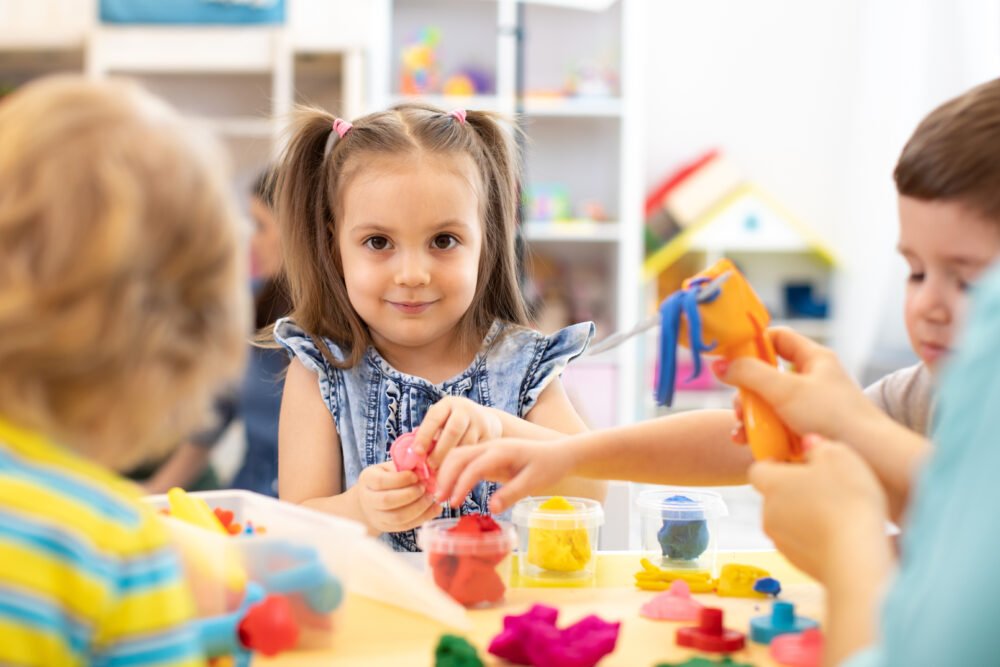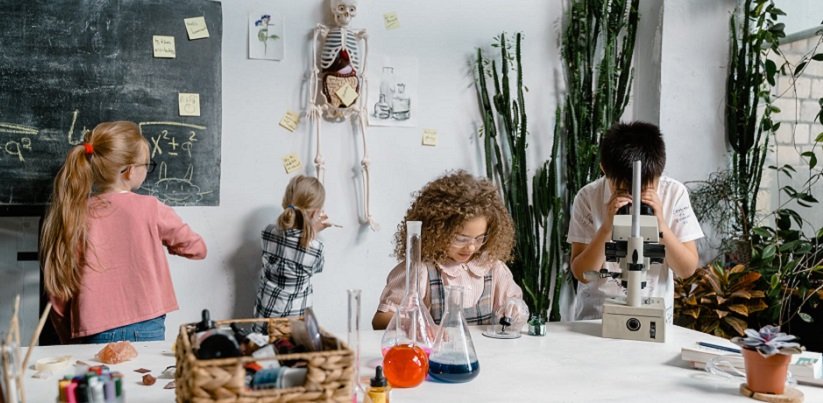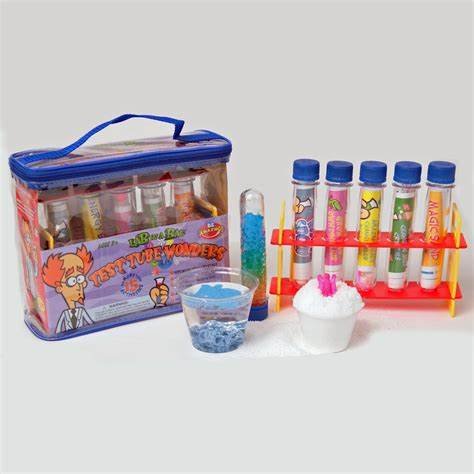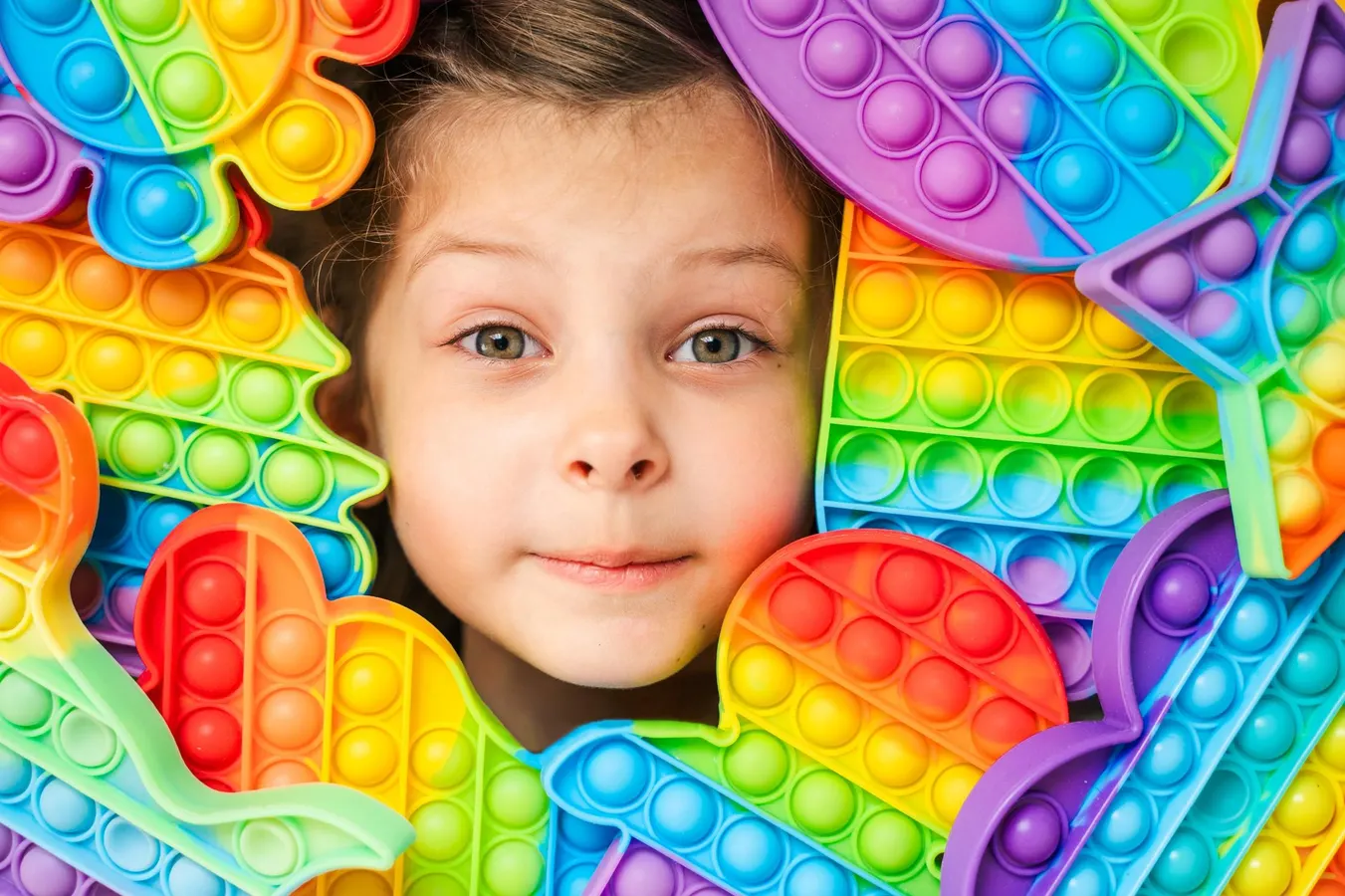Play is often seen as a fun activity, but in the world of preschool education, it serves a much deeper purpose. It is not just an enjoyable way to pass the time; it’s a critical aspect of early childhood development. Through play, preschoolers learn essential skills that will shape their cognitive, emotional, and social growth. Let’s explore why play matters so much in preschool education and how it contributes to shaping the future of young learners.
1. Supports Cognitive Development
Play is a powerful tool for fostering cognitive development. Through interactive activities like building with blocks, solving puzzles, or engaging in pretend play, preschoolers are challenged to think critically and solve problems. These activities encourage children to use their imagination, make decisions, and explore different ways of doing things. Cognitive skills such as memory, attention span, and logic are strengthened as children engage in these fun activities.
For example, when children play with shape sorters, they learn about spatial relationships and basic geometry. When building with blocks, they practice problem-solving by figuring out how to balance and structure their creations. These types of play help children develop key intellectual skills that will be foundational in their academic journey.
2. Fosters Social and Emotional Growth
Preschool play is equally important for social and emotional development. It provides opportunities for children to interact with their peers, share, negotiate, and learn how to resolve conflicts. Through group activities, preschoolers develop communication skills, empathy, and cooperation. These social interactions help them understand their emotions and begin to recognize and respond to the feelings of others.
Pretend play is an excellent example of how children work through emotions and practice social roles. Whether they are playing “house” or pretending to be doctors or teachers, they explore different social scenarios and practice managing complex emotions. This type of play gives children the space to express their feelings, whether they’re excited, frustrated, or happy, in a safe and supportive environment.
3. Enhances Physical Development
Physical play, such as running, jumping, climbing, and dancing, is an essential part of preschool learning. It enhances fine and gross motor skills and encourages healthy physical development. Activities like drawing, cutting with scissors, and playing with playdough help improve fine motor skills, while running and jumping foster strength and coordination.
Regular physical activity also supports brain function. Studies show that children who engage in physical play are more likely to have improved focus and academic performance. Whether it’s playing tag or participating in a simple yoga routine, physical play gives children the opportunity to develop essential body awareness and motor skills.
4. Stimulates Creativity and Imagination
One of the most powerful benefits of play is its ability to stimulate creativity and imagination. Preschoolers have vivid imaginations, and when given the opportunity to explore through play, they can create entire worlds in their minds. Activities like dress-up, role-playing, and drawing allow children to step outside their own experiences and take on different identities, whether they’re pretending to be superheroes, animals, or famous figures.
This imaginative play is essential for developing creativity and problem-solving skills. As children create stories and engage in make-believe scenarios, they practice thinking outside the box and coming up with new solutions to challenges. Creativity nurtures innovation and adaptability—skills that will benefit children throughout their lives.
5. Teaches Important Life Skills
Through play, preschoolers learn valuable life skills that will help them navigate the world. They develop essential skills such as patience, self-regulation, and resilience as they experience trial and error during play. For instance, when playing a game, children may need to wait their turn, follow instructions, or handle losing gracefully. These experiences teach them important lessons in fairness, respect, and perseverance.
Additionally, role-playing scenarios teach children about responsibility, cooperation, and the value of teamwork. These skills are foundational for success in both personal and professional relationships later in life.
6. Encourages a Love for Learning
Play not only supports development in the early years, but it also fosters a lifelong love of learning. When children are given the freedom to explore, experiment, and ask questions through play, they develop a sense of curiosity. Preschool play-based learning encourages children to explore different interests and areas of knowledge in a fun and engaging way.
By incorporating play into the learning process, educators can create an environment where children are excited to learn. This positive experience with learning fosters an enthusiasm that can extend into later academic years. When children associate learning with play and enjoyment, they are more likely to approach education with confidence and curiosity as they grow older.

7. Provides Emotional Release and Stress Relief
Play also serves as an emotional release for children. Preschool can be overwhelming for young children, as they’re adjusting to new environments, routines, and social situations. Play allows children to relax, release any built-up tension, and express themselves freely. Through activities like running around outside or engaging in arts and crafts, children can process emotions and de-stress.
Incorporating relaxing, soothing play activities such as drawing, painting, or listening to music also helps children feel calm and centered. These types of activities encourage self-expression and emotional regulation, which are essential for mental well-being.
Conclusion
The role of play in preschool education cannot be overstated. It supports the development of cognitive, social, emotional, and physical skills in a way that is engaging, enjoyable, and effective. By allowing children to explore the world around them through play, educators help shape well-rounded individuals who are prepared to face future challenges with confidence. In the early years, play is not just a pastime—it’s a vital tool for growth and learning.











